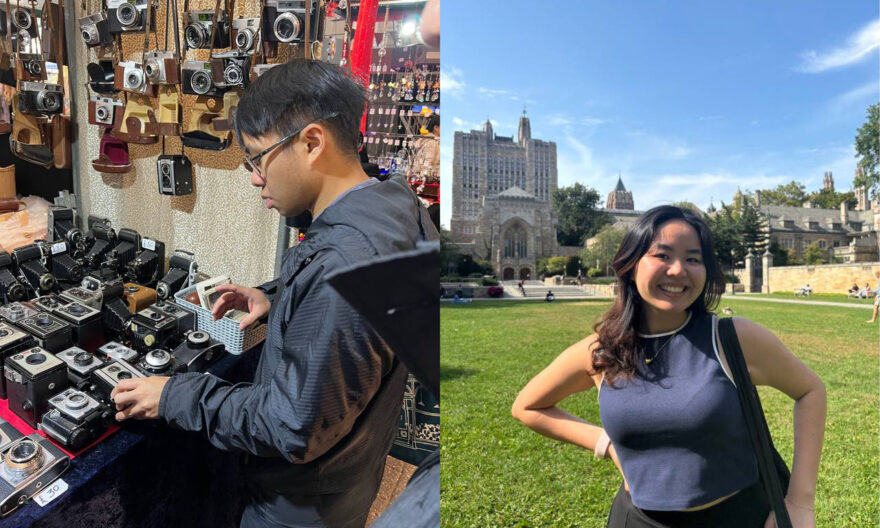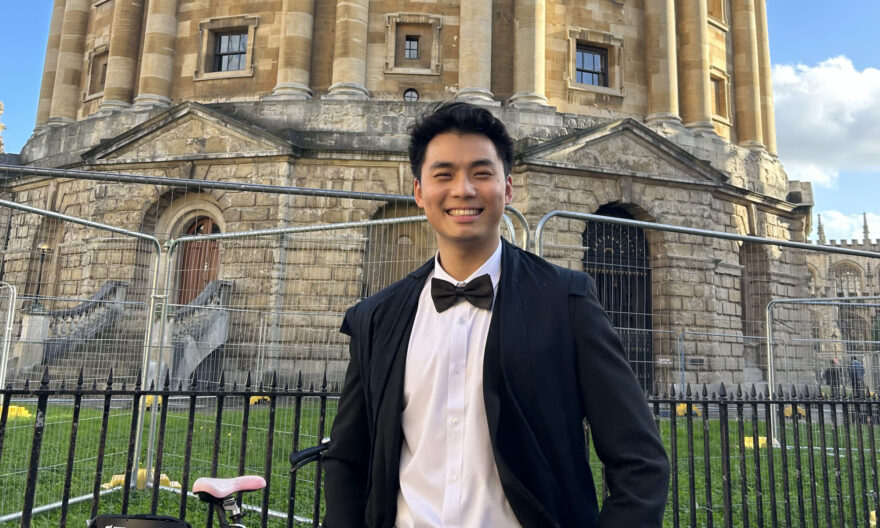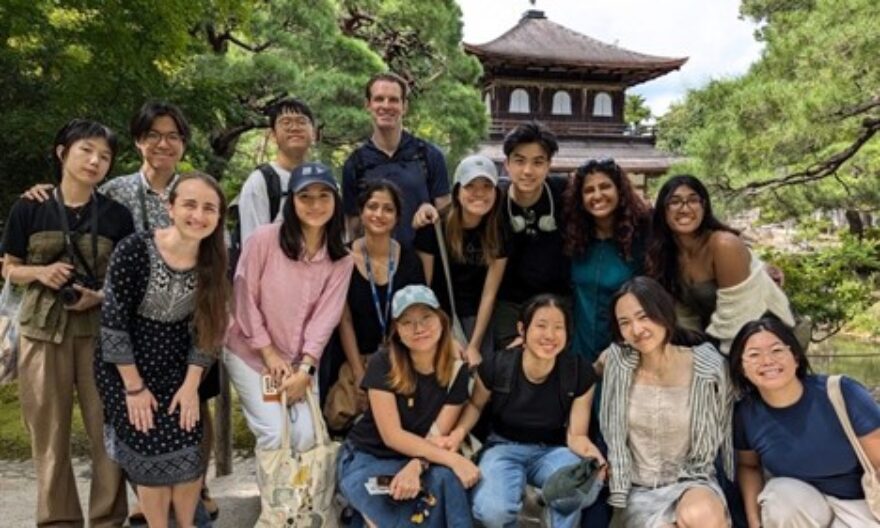Life after Yale-NUS: graduate school
Yale-NUS students share how their education at Yale-NUS College inspired and prepared them for graduate studies
 Sean Ang (left) and Garima Chib (right) from the Class of 2023 will be pursuing graduate studies in the coming months. Images provided by Sean and Garima.
Sean Ang (left) and Garima Chib (right) from the Class of 2023 will be pursuing graduate studies in the coming months. Images provided by Sean and Garima.
At Yale-NUS College, students are given many opportunities to engage with academic research. After graduation, Sean Ang and Garima Chib (both from the Class of 2023) will pursue graduate studies in Early Chinese History at the University of Colorado Boulder and Chemical Engineering at Carnegie Mellon University respectively.
Sean shared that when he first entered Yale-NUS, he was interested in the issue of power dynamics between nations and was deciding between History and Global Affairs for his major. After taking classes in Classical Chinese and Modern Chinese Literature, Sean became exposed to different ways of recording history, and developed an interest in early Chinese history.
Sean explained that for him, “the most captivating aspect of studying history lies not in gaining knowledge about past events, but in uncovering how these events in the past were recorded and thought about throughout the ages”.
At Yale-NUS, Sean pursued various research opportunities related to Chinese. For example, Sean took two independent research modules with Professor of Humanities (Chinese Studies and History) Scott Cook to develop his Classical Chinese language skills and attended a summer research programme at Yale University on 17th-century Chinese literature.
“During my summer at Yale, I was often tracing manuscripts or going through entire archives just to find a particular print or image! Historical research is a very slow and non-linear process, which taught me that if I wanted to further my studies in this field, I need more consistency, patience, and grit.”
“I like to immerse myself in my sources – I like to close read, trace down quotes, try to uncover what the author is referencing, and slowly discover how the source came to be. My liberal arts education at Yale-NUS has enabled me to use and combine a diverse variety of research methods in studying Chinese history. There is something special about Yale-NUS that really encourages exploration,” Sean shared.
As Sean prepares to embark on graduate studies at the University of Colorado Boulder, he shared how he is excited to delve deeper into records from early Chinese history such as ghost stories, dreams, and fables. Sean explains that these accounts offer insights into how people perceived and thought about their social life, thus illuminating the social and cultural context of their times.
Garima Chib, a Physical Sciences major, will be pursuing graduate studies in Chemical Engineering at Carnegie Mellon University after graduation.
Garima shared that early in her academic journey, she became very interested in chemical engineering, and knew that she wanted to pursue graduate studies in the field. As such, even during her earlier years at Yale-NUS, she decided to pursue courses and research opportunities that would prepare her to do advanced research at top graduate schools.
For her year-long capstone, Garima delved into the topic of soft matter physics, which brought together multiple branches of physical sciences. Taking a theoretical approach, Garima created models and simulations to study phase separation in proteins. Garima shared how her prior experience as a research assistant for Assistant Professor of Science (Chemistry) Zhuang Bilin equipped her with the necessary skills and theoretical background to pursue her capstone project.
“Yale-NUS College has a great network that connects you with professors who are passionate about mentoring students. Working with and learning from Asst Prof Zhuang helped develop my academic interest which eventually impacted my capstone project,” she shared.
Garima explained that despite pursuing a science major, her liberal arts education at Yale-NUS helped her become a better researcher. For example, through her minor in Economics, Garima learnt modelling, which could be applied to the physical sciences, and strengthened her interdisciplinary approach to problem-solving.
On her advice for students, Garima said, “The various resources offered at Yale-NUS have been integral to my undergraduate journey as well as applying to graduate school. I would recommend building relationships with your professors – the guidance my professors gave me allowed me to develop my research interests and gain an insight into what graduate school can look like. Additionally, their advice on writing personal statements and crafting a compelling graduate school application helped me tremendously. This network and support is what makes Yale-NUS so special.”




